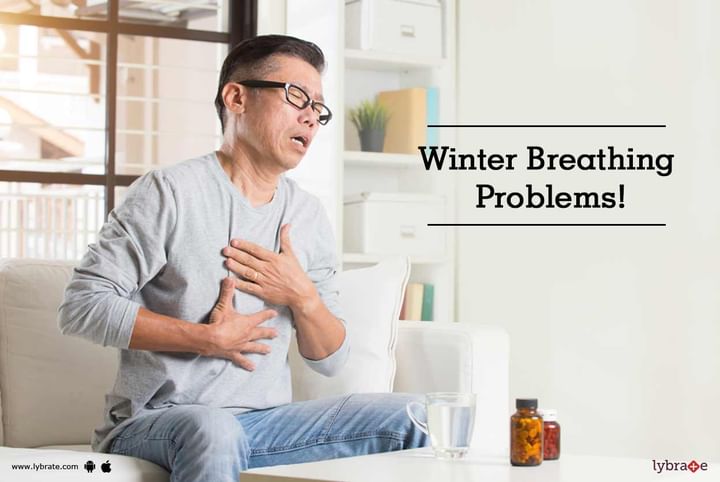Winter Breathing Problems!
Seasonal changes can have a great impact on one's health. The onset of winters, in particular, can be quite harsh and difficult for people with chronic lung problems such as Chronic Obstructive Pulmonary Disease or COPD, Asthma, and a host of similar lung and respiratory problems resulting in breathing problems. Without proper precaution, the condition will only deteriorate further, going from bad to worse. In this article, we will discuss why winter is often punishing for people with breathing problems along with the necessary precautionary measures.
During winters, the air is cold and dry, with reduced moisture and humidity which can trigger irritation and constriction of the airways (a condition known as Bronchospasm) leading to breathing troubles (there can be shortness of breath). During winters we all try and maintain a warm indoor temperature. When we go outside, we are suddenly exposed to cold and dry air. This sudden temperature fluctuation can also wreak havoc triggering spasms and irritation of the lungs which interferes with the normal breathing.
People with Asthma, Chronic Obstructive Pulmonary Disease, Acute Bronchitis or Emphysema (a type of COPD, whereby there are over-inflation and damage of the alveoli resulting in shortness of breath) should be extra careful. Winter is a time when the microbial infections (viral, bacterial, fungal infections, to name a few) like cold, flu, are on a rise. The infections can trigger further irritation and inflammation of the lungs, worsening the situation significantly.
Preventive and precautionary measures
- Breathing problems can be controlled and managed with elan by following some simple yet effective preventive measures.
- Asthma patients or people who have breathing problems should always keep the inhaler (Bronchodilator) and the medications handy. However, those using bronchodilators (inhalers) should use it at least thirty minutes before stepping outside.
- If the temperature is cold and dry outside, use a scarf to cover your nose and mouth while going outside. Use of a cold air face mask can go a long way to avert the harmful effects of temperature changes on the airways and the lungs.
- During winters, the use of a Humidifier can work wonders to keep the air inside the house moist and humid. However, while using a humidifier, make sure the water you are using is demineralized or distilled to avoid bacteria from thriving into the humidifier. Also, make it a habit the clean the humidifier at regular intervals.
- Keep yourself warm and eat warm foods. Enrich your diet with citrus fruits and healthy vegetables to keep the various infections and cold at bay. Light or moderate exercise is a great way to keep the body warm.
- Incense sticks and cigarette smokes act as catalysts aggravating the breathing problem further. Keep away from such triggers as much as you can.
In case you have a concern or query you can always consult an expert & get answers to your questions!


+1.svg)
